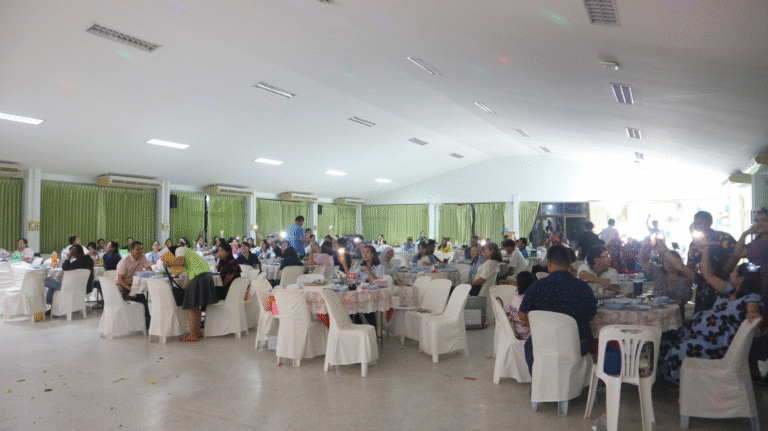Reporters: Mr. Sujinda Saehan, Mr. Ekkajak Intarat, Mr. Nitigon Jumniansuk, Mr. Thanet Sangseejun
Evidence Date: March 11th, 2024
Related SDGs: 
Related Indicators: 6.5.1, 6.5.3, 6.5.5, 6.5.6, 6.5.7
Details:
Rajamangala University of Technology Srivijaya (RUTS), Trang Campus, Faculty of Science and Fisheries Technology, in collaboration with Benjamarachutit School, Nakhon Si Thammarat, organized an academic service project titled “Marine Environmental Science Camp.” The event welcomed more than 100 students to participate in a range of engaging and educational activities designed to foster environmental awareness and scientific understanding.
The camp was held on Monday, March 11, 2024, at the main conference hall of the Integrated Learning and Laboratory Building, RUTS Trang Campus. Associate Professor Manoch Khamcharoen, Dean of the Faculty of Science and Fisheries Technology, warmly welcomed teachers and students from Benjamarachutit School and presided over the opening ceremony.
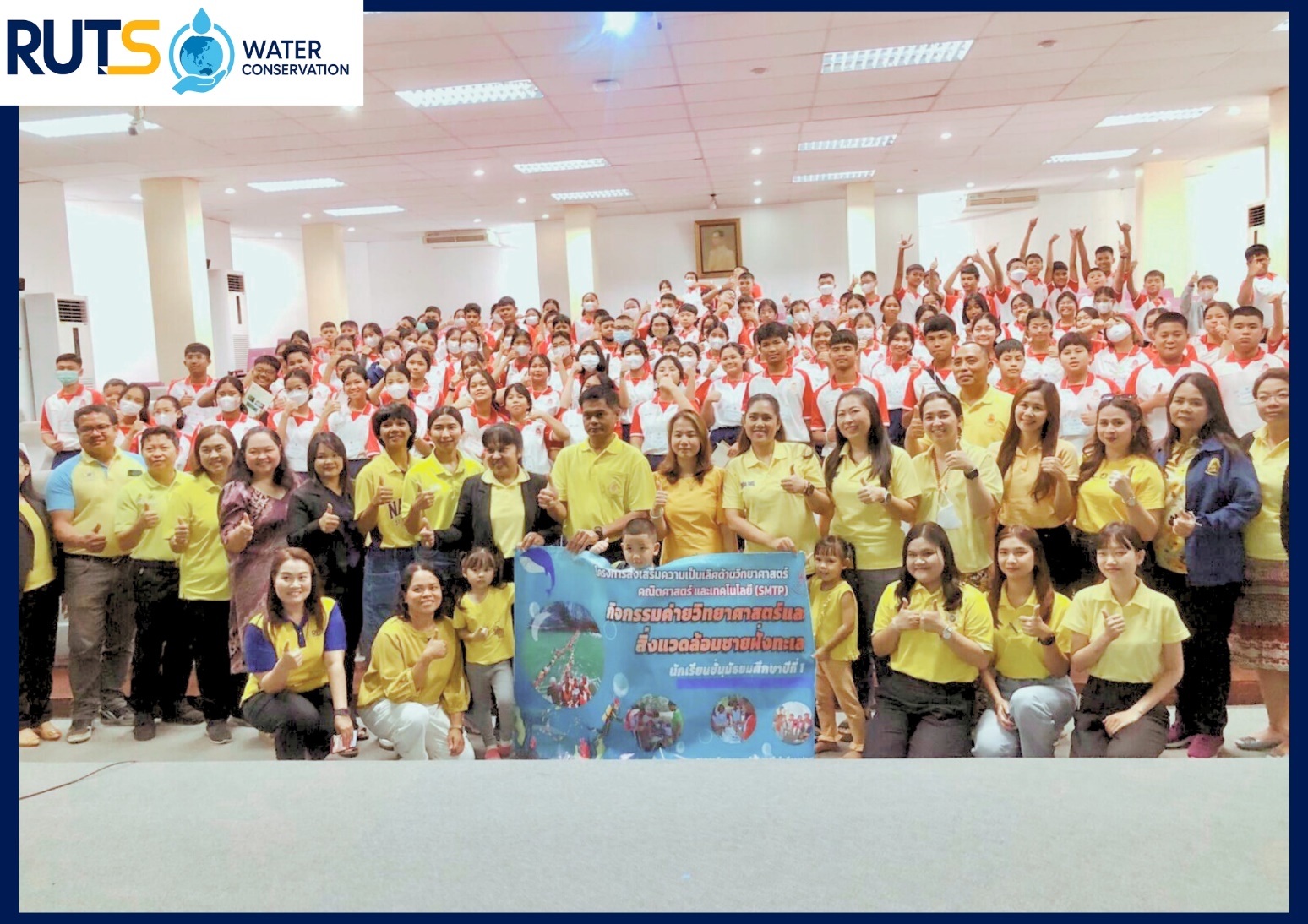
In his remarks, Assoc. Prof. Manoch emphasized the growing importance of marine ecosystem conservation, noting the alarming deterioration of seagrass meadows—a vital habitat that supports numerous marine species. He highlighted that RUTS Trang Campus has continuously conducted academic and community outreach projects dedicated to the protection and restoration of marine environments. These initiatives aim to disseminate accurate knowledge about marine resource conservation, raise awareness, and instill a sense of environmental responsibility among young people and local communities. The ultimate goal is to inspire practical actions that help reduce or prevent degradation of marine and coastal environments, particularly with respect to water and soil quality, which directly impacts marine biodiversity and ecosystem resilience.
Associate Professor Chantra Uiang-Ang, Head of the General Education Department and project coordinator, explained that the program included comprehensive training sessions on topics such as mangrove ecosystem ecology, basic environmental assessment, water quality testing, and marine debris management. These activities enabled students to gain firsthand experience in environmental monitoring techniques—including measuring parameters such as pH, salinity, dissolved oxygen, and turbidity.
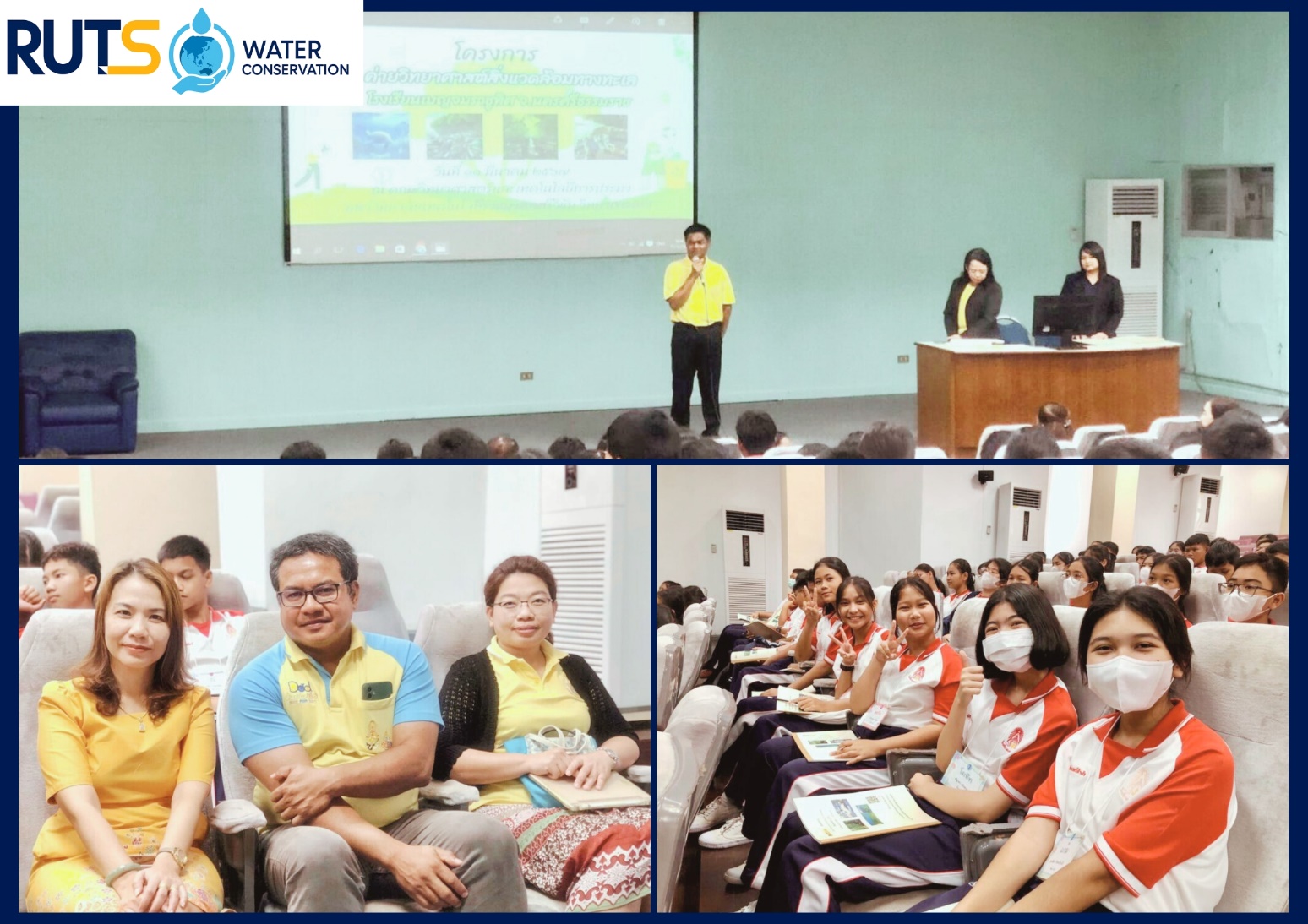
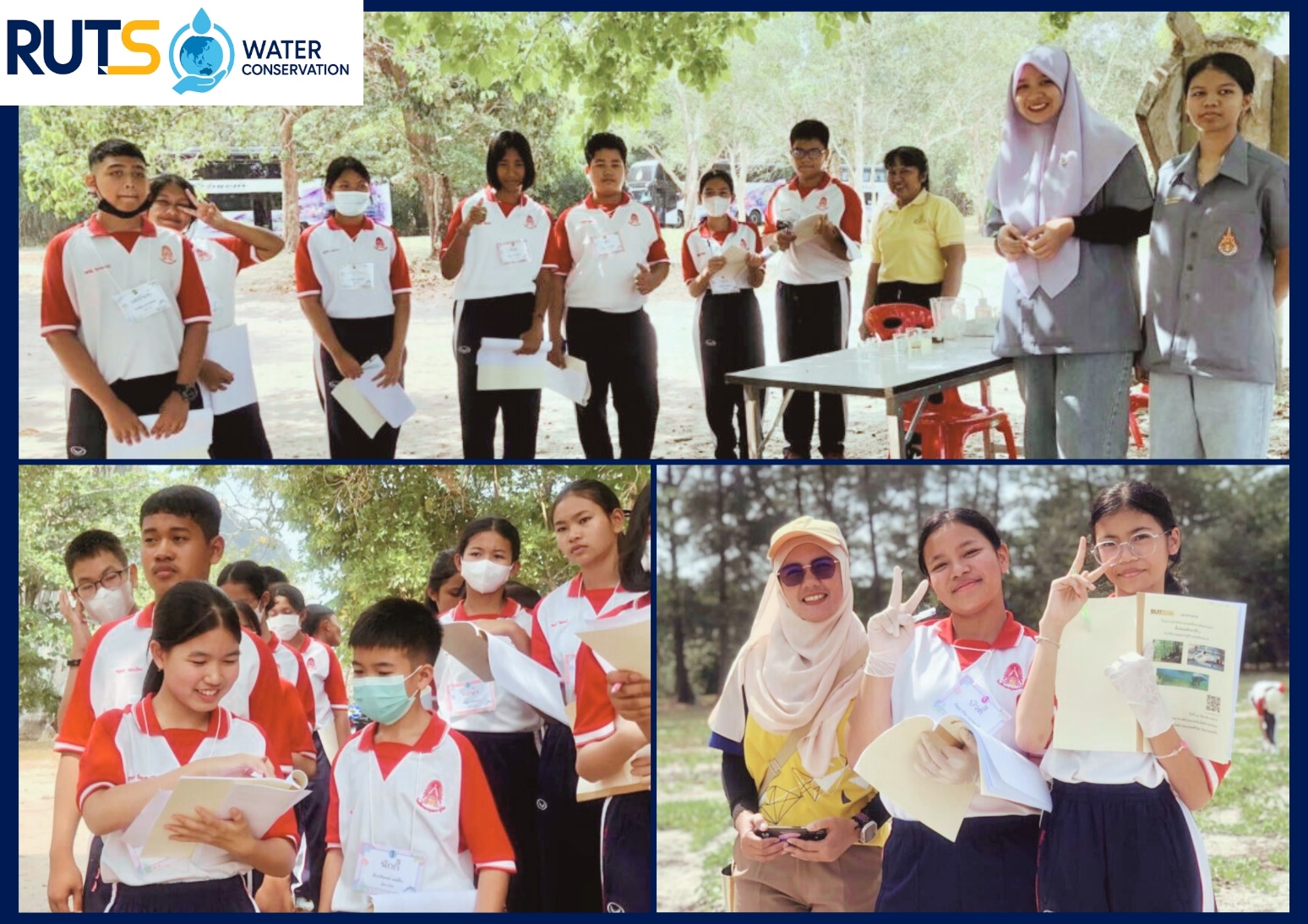
Through activities such as water quality testing and environmental monitoring, participants learned about the importance of preserving water quality, reducing pollution, and promoting sustainable water management practices in coastal ecosystems. These hands-on experiences helped students understand the interconnectedness between land-based human activities and ocean health, reinforcing the idea that maintaining clean water sources is essential for both terrestrial and marine life.
The highlight of the event was a hands-on seagrass planting activity at Modtanoy Beach, Koh Libong Subdistrict, Kantang District, Trang Province. This area is home to one of the 12 known species of seagrass found along the Andaman coast. Seagrass meadows play a crucial role in maintaining marine biodiversity—they serve as food and shelter for various aquatic organisms such as fish, shrimp, crabs, and small invertebrates. Moreover, they function as an essential feeding ground for endangered marine megafauna, including sea turtles and dugongs, both of which are important indicators of healthy marine ecosystems.
In addition to supporting biodiversity, seagrass ecosystems contribute to carbon sequestration, thereby playing a significant role in climate change mitigation. By protecting and restoring seagrass beds, communities help reduce greenhouse gas concentrations and enhance the natural resilience of coastal habitats to environmental changes.
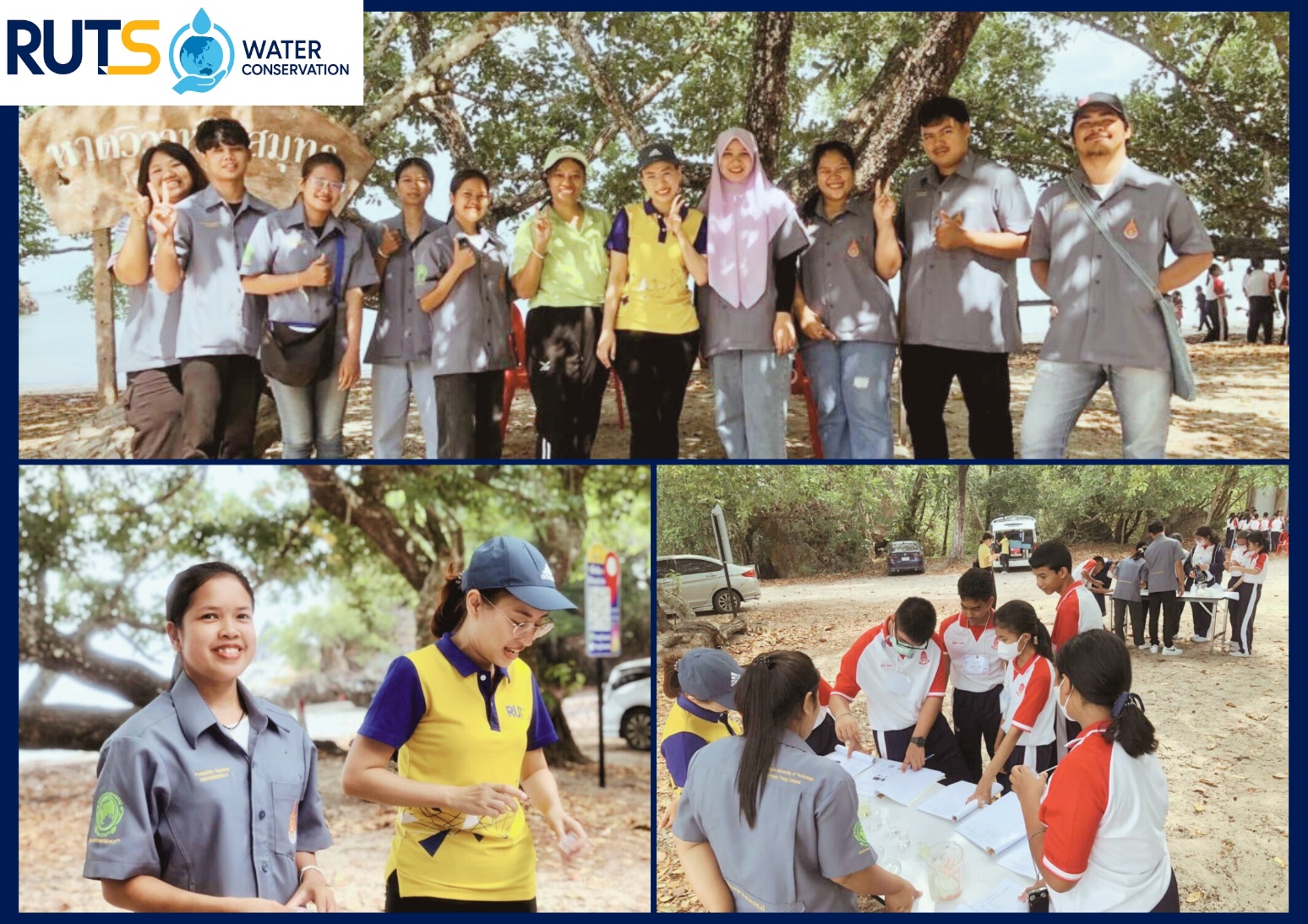
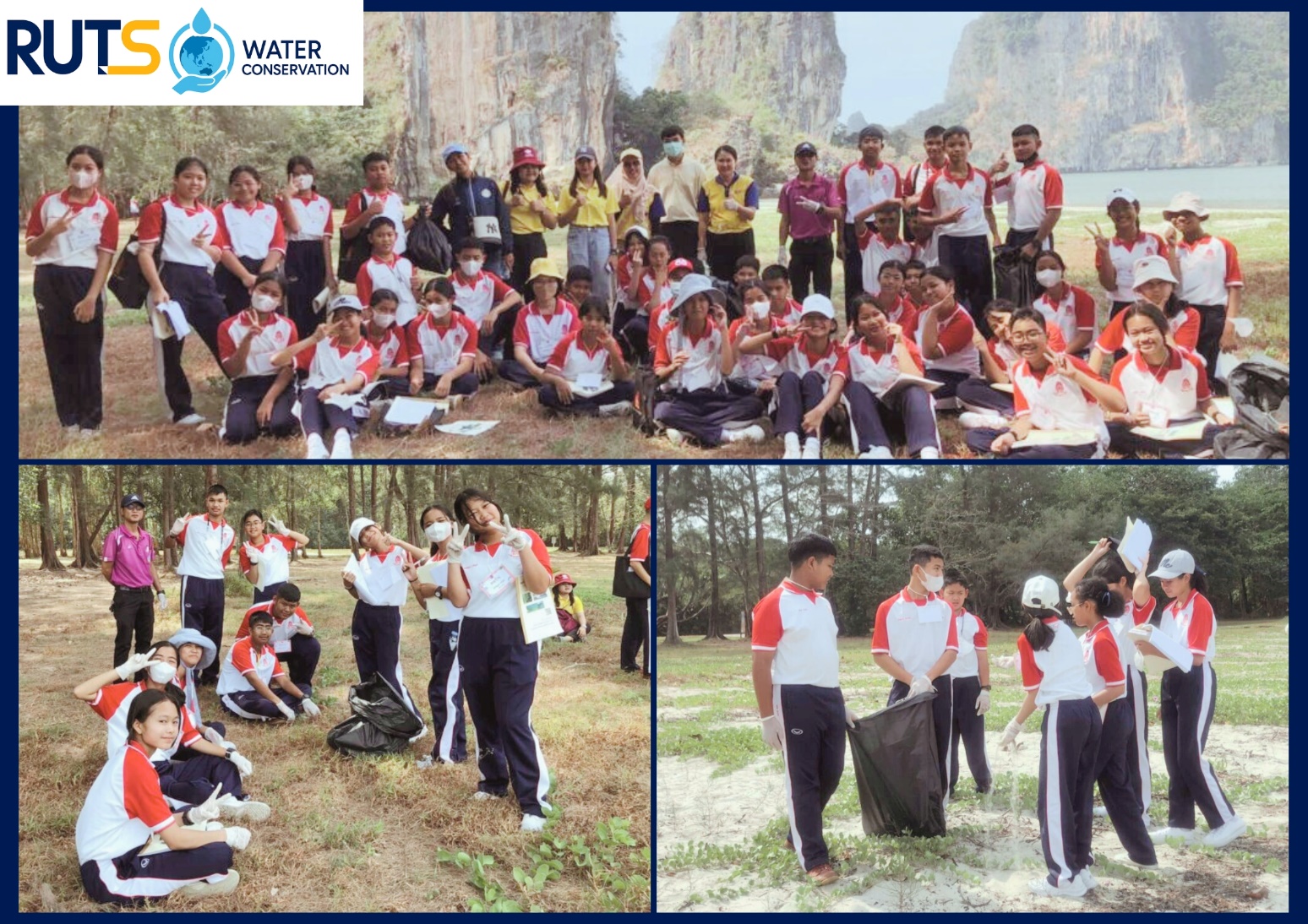
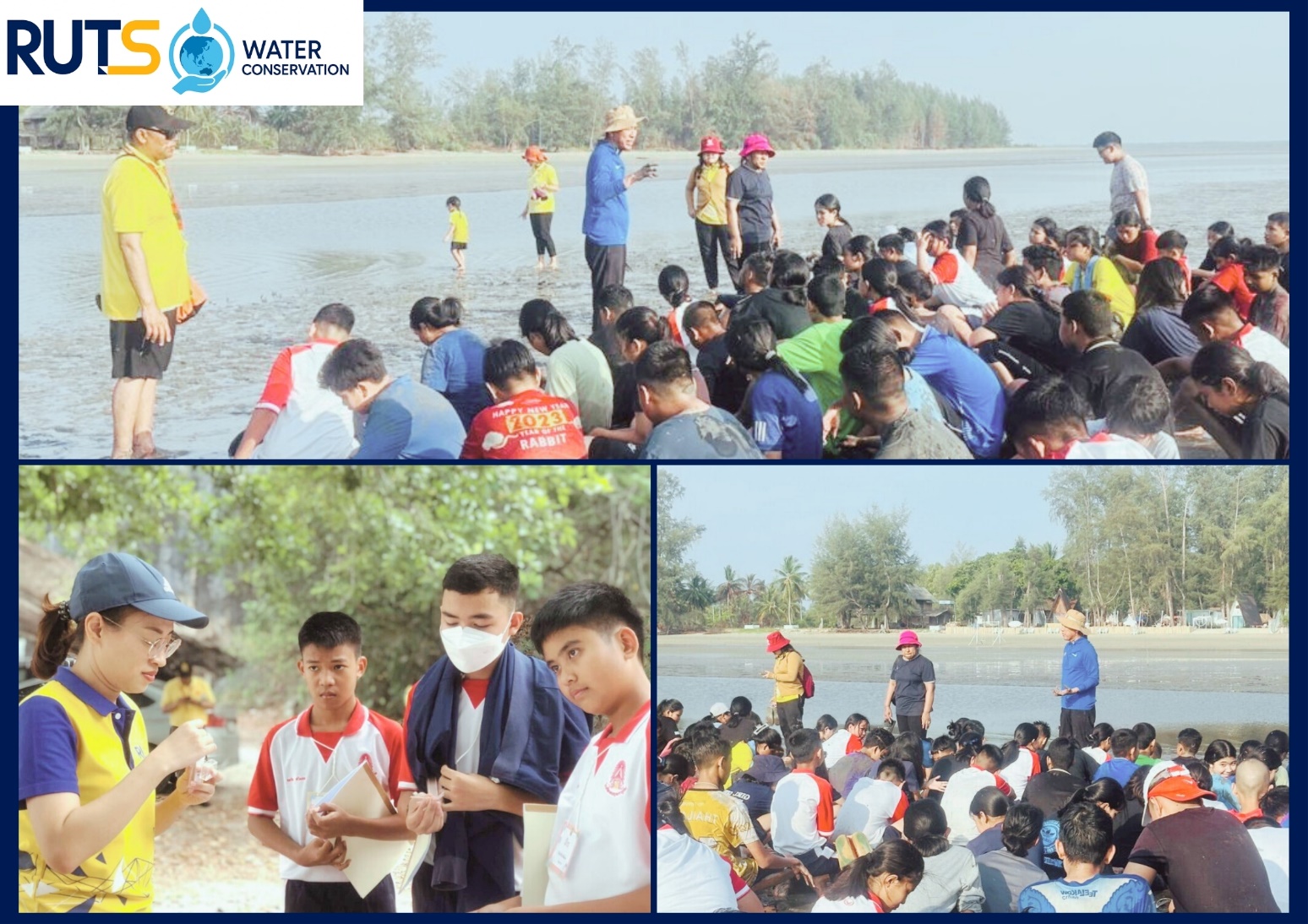
The “Marine Environmental Science Camp” exemplifies how RUTS integrates academic knowledge, local wisdom, and hands-on learning to promote sustainable marine resource management. By engaging students in real-world conservation practices, the university strengthens the connection between education, community engagement, and environmental stewardship, paving the way toward a more sustainable and resilient coastal future for Thailand.
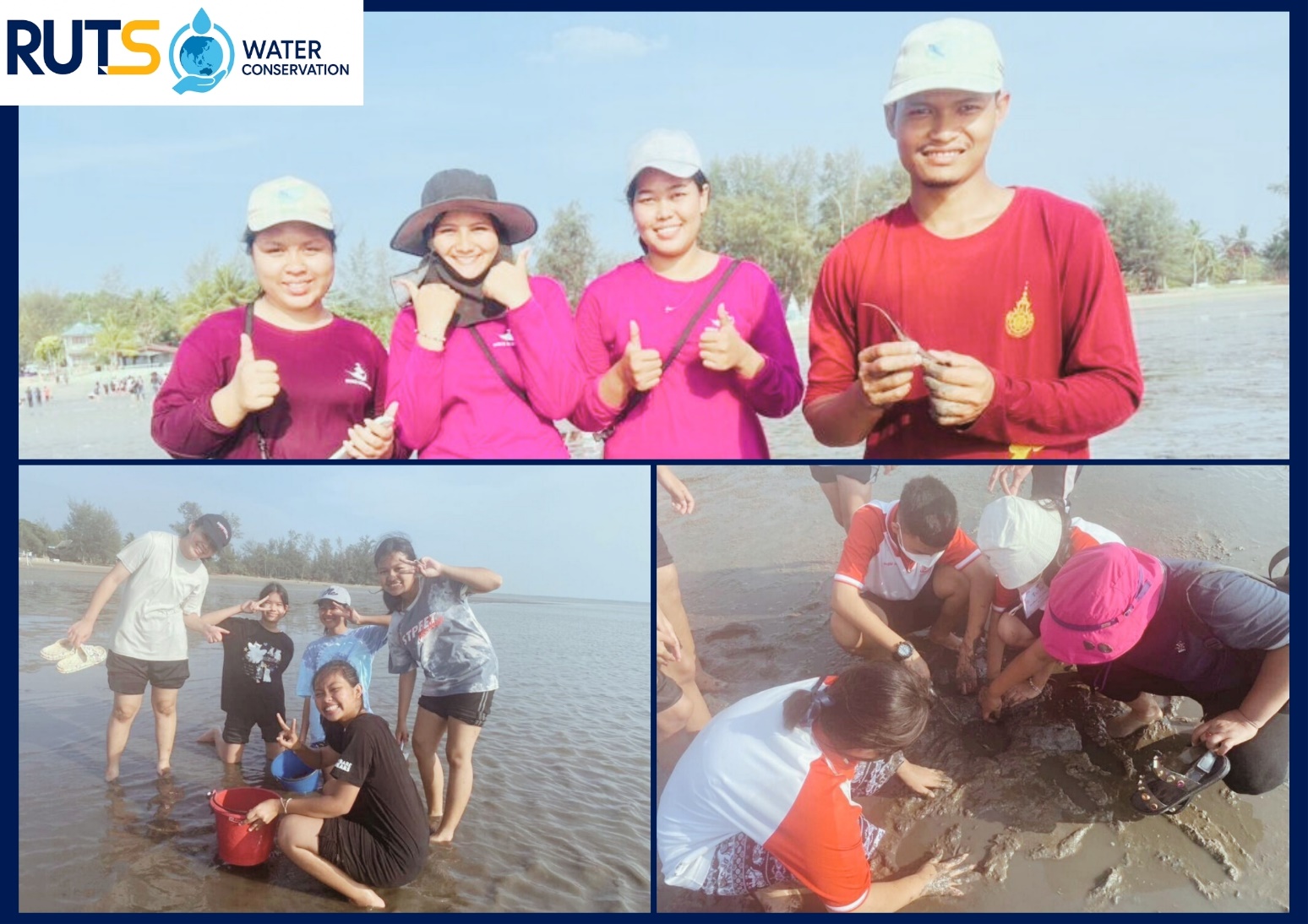
Related Links:



